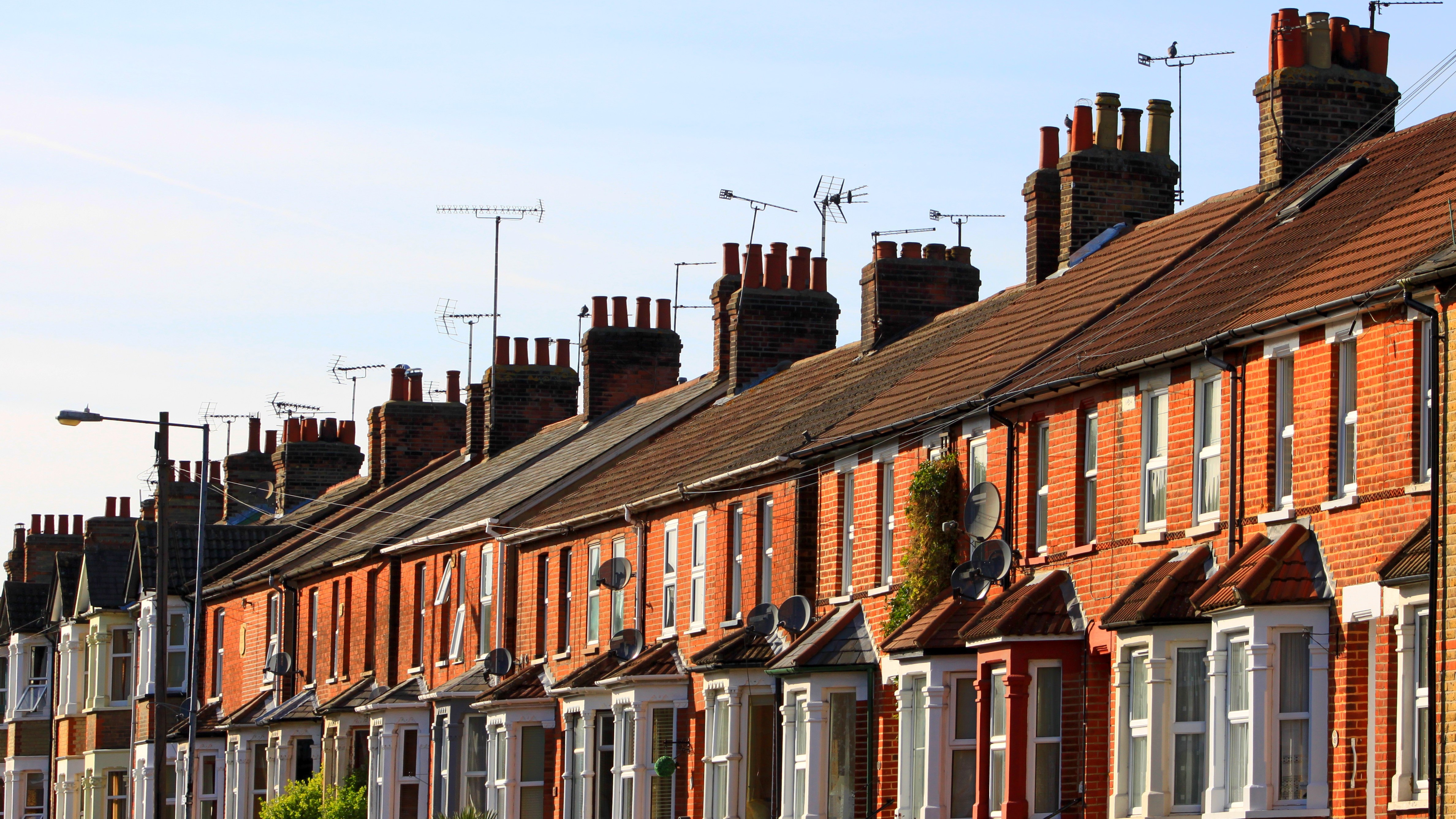
In setting its priorities for the sixth Senedd, the Climate Change, Environment and Infrastructure Committee agreed to undertake a multi-phase inquiry on the decarbonisation of housing in Wales.
During the first phase of the inquiry the committee heard that, to date, the Welsh government's focus has been on decarbonising social housing.
While stakeholders agreed it was sensible to begin the programme of retrofit in the social housing sector, they were concerned about the lack of progress made towards developing a plan to decarbonise privately owned housing.
On 28 February, the committee published its report on decarbonising the private housing sector in Wales.
The foreword by committee chair Llyr Gruffydd points to 'a pressing need for a comprehensive plan' to retrofit more than a million homes, to improve their energy efficiency and enable low-carbon heating.
Gruffydd continues: 'It's a massive undertaking. But, with no long-term strategy or plan for getting the sector ready to decarbonise, no firm policy proposals to [encourage] retrofit, and a gaping hole where financial solutions … should be, the Welsh government has an inordinate amount of work to do.'
Among the report's 28 recommendations are the following.
- The Welsh government must provide clearer and stronger strategic direction for the industry and other players to help decarbonise existing homes.
- The government's plan for housing decarbonisation must include specific milestones and interim targets for the private housing sector.
- The climate change minister Julie James should report back to the committee on the development of the plan no later than the end of August; she should also commit to providing progress reports every six months thereafter.
The minister has asked the independent Decarbonisation of Existing Homes in Wales Advisory Group, which I chair, to prepare a route map for the sector, and we have begun work on this.
But even before the map is complete, we can identify much of what needs to be done and by whom.
'The Welsh government must provide clearer and stronger strategic direction for the industry and other players to help decarbonise existing homes'
Access to smart meter data critical to success
It is essential that the Welsh government and its agents have access to smart meter data about energy consumption in homes, so progress on decarbonisation can be monitored, emissions calculated, lessons learned and corrective action taken if necessary.
At present, this information is held by the Data Communications Company (DCC), which is not allowed to release it without the written consent of bill-payers.
The Welsh government should therefore work with the UK Departments for Energy Security and Net Zero and for Levelling Up, Housing and Communities so that the DCC can make data available to trusted organisations under appropriate confidentiality protocols without requiring bill-payers' consent.
Building renovation passports
Although the Welsh government cannot make commitments on behalf of future office-holders, each administration can ensure that work carried out during its term in office supports the decarbonisation efforts of those that follow.
That is why collecting data about homes is so urgent. If completed during the 2021–26 term, it can inform decisions made by subsequent administrations.
To decarbonise Welsh housing stock, many different organisations need different but overlapping sets of data at different times about the construction, condition and energy consumption of all homes in the principality.
RICS can take a lead in collecting this data, and the Welsh government should support this effort by implementing building renovation passports before the end of the current Senedd term.
Ensuring retrofit will require broad collaboration
While the Welsh government will be responsible for implementing many of the route map's recommendations, other organisations such as estate agents, planners, banks, building societies, builders and builders' merchants all have a part to play in ensuring widespread retrofit, given the influence they have on homeowners' behaviour.
But if this work is to be effective, the government needs to do better when it comes to communicating with the public and these bodies.
It does not at present appear to have an underlying narrative for its public messages – for example, will we be saved by technology, or are we all on a learning journey?
Another area of collaboration will be with local authorities. There is evidence that homeowners in English conservation areas are being deterred from making energy-saving improvements to their homes, so the Welsh government should act to ensure that the same is not true there.
'There is evidence that homeowners in English conservation areas are being deterred from making energy-saving improvements to their homes, so the Welsh government should act to ensure that the same is not true there'
It could for instance instruct and support local authority planners and conservation officers to provide local development orders, telling people what they can do to decarbonise their homes in the 500-plus Welsh conservation areas. There are precedents for this in England.
There are also many third-sector organisations in Wales concerned with residential energy efficiency, fuel poverty and climate change, including Community Energy Wales, Friends of the Earth, Greenpeace, RSPB, Transition Network, Third Sector Support Wales and National Energy Action.
The government should engage with these bodies to accelerate change – for example, through community building, knowledge sharing, facilitating learning, providing resources, convening stakeholders, capacity development and data gathering.
Institutional action can support residential decarbonisation
In April last year the Welsh government refreshed the remit of the National Infrastructure Commission for Wales to consider the climate and nature emergencies in all its work.
The government needs likewise to enhance the remit of the Development Bank of Wales, which promotes economic development by filling the gap between the finance that the private sector supplies and the funding Welsh businesses need so that it more actively and urgently supports residential decarbonisation.
At the level of individual properties, meanwhile, too many energy performance certificates (EPCs) are old and invalid, and in some cases incorrect. The government should therefore push Westminster to require that a recent, valid EPC is necessary to obtain a new mortgage.
The shortcomings of EPCs are well known, and the Welsh government should adopt better metrics for its targets, as the Climate Change Committee recently advocated.
The Welsh government should also seriously consider imposing requirements akin to the Minimum Energy Efficiency Standards for domestic private rented property on second homes and holiday lets, to improve their performance.
Identifying homes in greatest need of support
While there may be no consistent reliable way of determining adjustments to a property value based on EPC rating, there is growing evidence of a clear correlation between the improvement in energy efficiency and an increase in resale value in excess of market trends.
The Welsh government should identify homes where the cost of retrofit would not be matched by an increase in property value, or where the owner cannot afford the work, to properly understand the size of the problem.
It can do so by combining sales data from online real estate portals such as Rightmove with information from the recently established Wales building stock model, as well as confidential socio-economic data.
After that it would be able to decide how best to decarbonise these homes. There may be lessons from the Leasing Scheme Wales that can be applied to owner-occupied homes.
An effective redress scheme will also be needed so that homeowners are protected against loss if unsatisfactory work is carried out.
The government has a major role to play in the creation of such a scheme, which would be part of a comprehensive retrofit quality regime whose design could be led by the Federation of Master Builders.
Research will inform target-setting
The Welsh government should commission a study to analyse the thermal behaviour of the 18 archetypes of home that the Welsh School of Architecture identified in earlier work.
This will help determine the optimum percentage reduction in space heating demand that can be achieved by each archetype.
The impact of electric heating and electric vehicle charging on low-voltage networks needs to be considered in this study.
The government should use the findings to help set targets for the energy efficiency of existing homes. Not every homeowner will be willing to act, though, so it is likely that some coercion will be necessary.
That highlights the importance of having explicit, long-term, mandatory targets in a way that is recognised by buyers. Failure to comply will prevent further sales or lettings of the property.
These targets would specify maximum energy usage – for example, no detached home's annual space heating may exceed a certain number of kilowatt-hours per square metre by 2031.
There is much that government and other organisations can do immediately, at low cost, to help create an enabling environment for private homeowners; that is to say, an environment in which private homeowners chose to decarbonise their homes and find it easy to do so effectively.
'There is much that government and other organisations can do immediately, at low cost, to help create an enabling environment for private homeowners'
Chris Jofeh is chair of the Decarbonisation of Existing Homes in Wales Advisory Group and a consultant at Arup
Contact Chris: Email
Related competencies include: Data management, Housing maintenance, repairs and improvements, Legal/regulatory compliance, Sustainability

